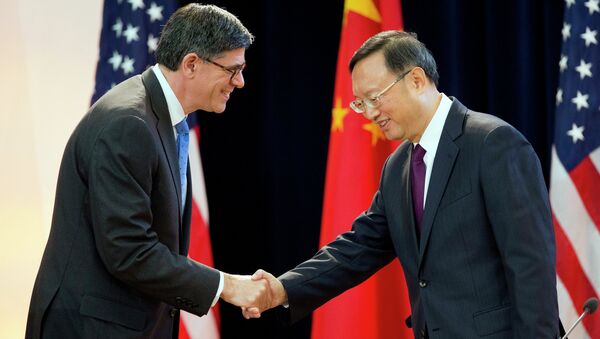Jacob Lew urged Beijing to speed up the process of economic restructuring and called for closer cooperation on climate, global finance, agriculture and other fields.
He also pressed China to cut excess production of steel and aluminum, which he described as “critical to the function and stability of international markets."
For his part, Chinese President Xi Jinping pledged further efforts to reduce overcapacity and reform state corporations.
Earlier Beijing announced plans to slash the output of steel and coal at its state enterprises with the planned layoff of 2 million workers, but fell short of pledging similar cuts in the production of aluminum, glass and solar battery panels.
US pressure on China, joined by the EU, Australia and Japan reflects the growing competition between world steel producers amid falling demand.
The newspaper mentioned constant US calls on Beijing to speed up economic reforms and give foreign companies access to its domestic market of financials and other services.
Strong US pressure on China to reduce a rising burden of corporate debt that could hamper economic growth may send US interest rates up.
This is a very worrying prospect for Beijing, which means that it will try to resolve the issue of ensuring the risks this increase poses to its economic growth.
Any spike in the rate of the US dollar would increase China’s debt and corporate management outlays. China’s overall debt is estimated at between 280 and 360 percent of GDP while its corporate debt stands at just under 160 percent.
Any increase in the foreign debt will undermine the country’s ability to service its domestic corporate debt, resulting in a series of defaults.
Speaking at the opening of the Beijing forum President Xi Jinping called to use the meeting to ensure greater trust between the two countries and prevent diplomatic tensions from hampering mutually-beneficial trade and other relations between the world’s two biggest economies.



